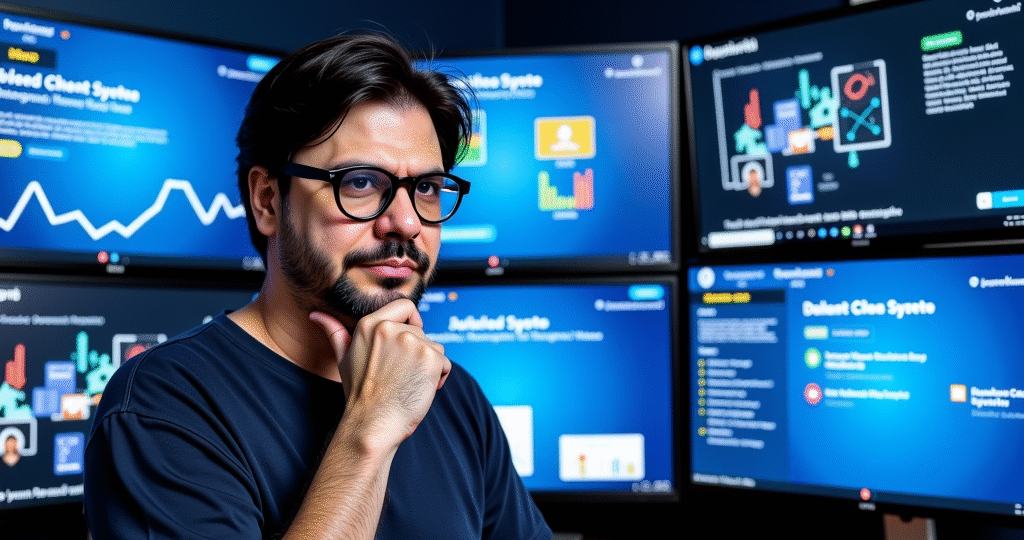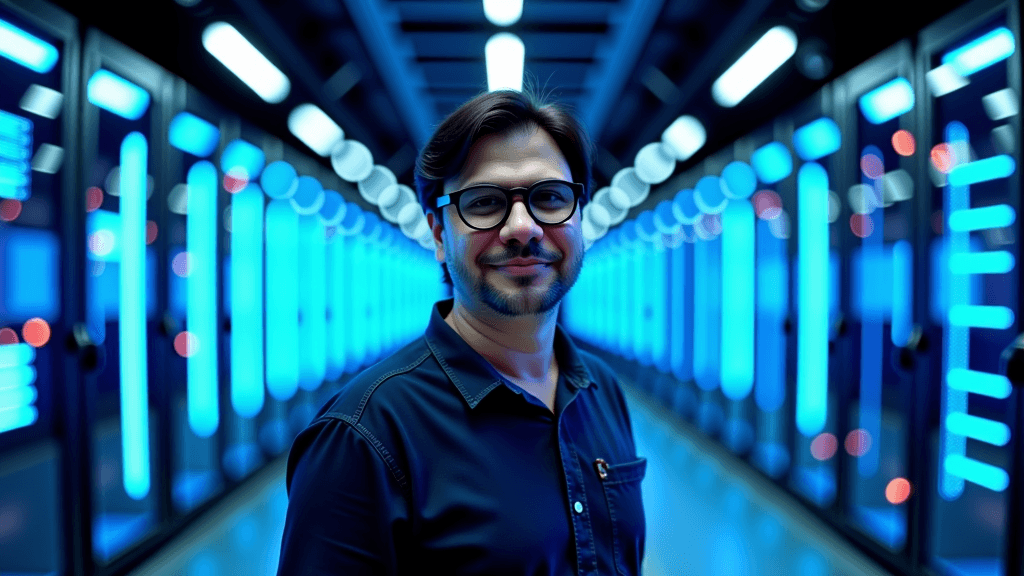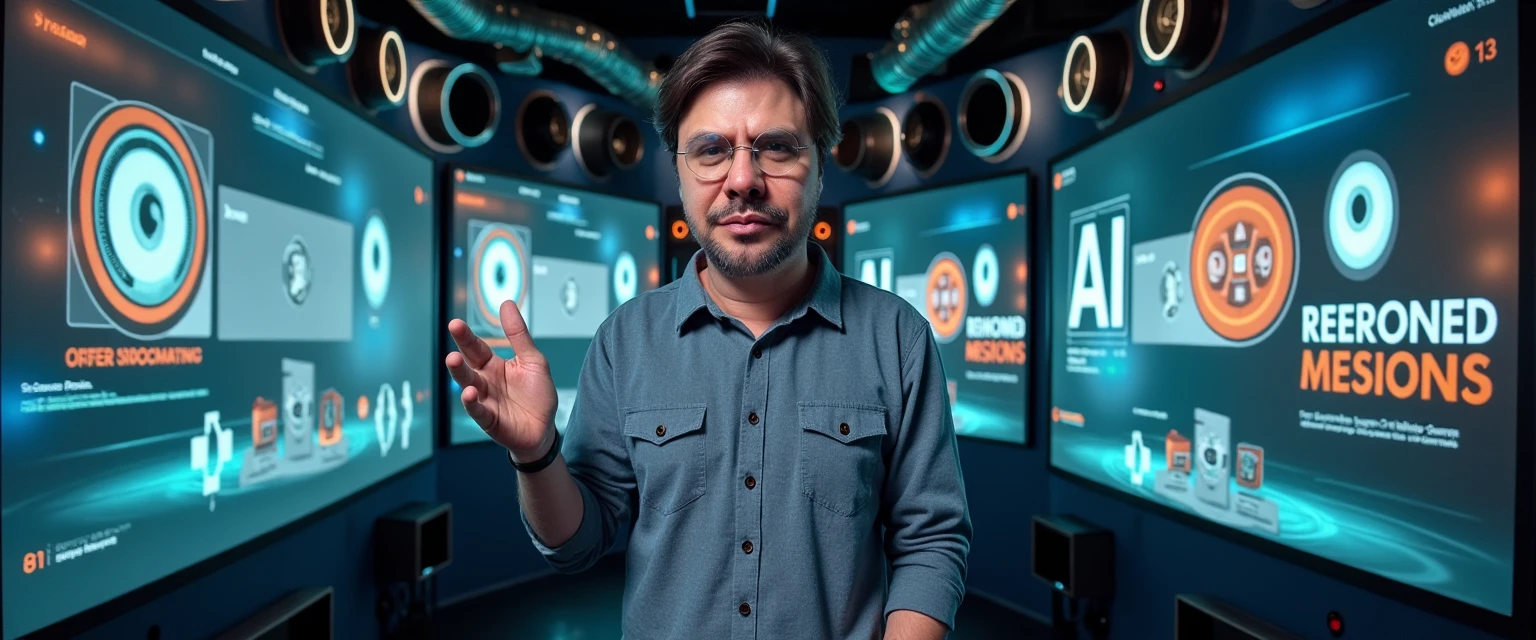AI Radar: Between Failed Replacements and Pioneering Regulations — The Human Dilemma in the Age of Automation
May 18, 2025 | by Matos AI

The last week has brought us compelling examples of how the implementation of artificial intelligence is far from being a linear or predictable process. Emblematic cases are beginning to emerge showing that, despite all the corporate enthusiasm, the accelerated replacement of humans by AI systems may bring more problems than solutions. And it could not be otherwise – after all, we are talking about a transformative technology that needs to find its proper balance in production processes.
The Failure of the “AI First” Strategy
A very revealing case comes from Duolingo, a language learning platform that recently adopted an aggressive strategy of replacing employees with AI systems. The company is facing a barrage of criticism on social media, especially on TikTok, with users arguing that language teaching needs a human component.
According to Fast Company Brazil, Duolingo is not alone in this predicament. Klarna, the payments platform whose CEO has said he wants to make the company “OpenAI’s main guinea pig,” has also had to rethink its approach after noticing a deterioration in the quality of its customer service.
Join my WhatsApp groups! Daily updates with the most relevant news in the AI world and a vibrant community!
- AI for Business: focused on business and strategy.
- AI Builders: with a more technical and hands-on approach.
This setback perfectly illustrates what I have been discussing with entrepreneurs over the past few months: AI is not here to replace people, but to unleash their human potential. In their rush to reduce costs and accelerate technology adoption, many companies are ignoring the irreplaceable value of empathy, creativity and human judgment.
The Hidden Environmental Impact of AI
While we debate the impacts of AI on the job market, another important dimension is being revealed: its environmental cost. A study by the University of California, reported by G1, shows that asking an AI between 20 and 30 questions can evaporate half a liter of drinking water.
This is particularly worrying for Brazil, which faced its worst drought in history in 2024. The Brazilian government is seeking to attract data centers with tax breaks, promising to use clean energy, but experts warn about the increase in demand for water resources in already vulnerable regions.
The question remains: Are we prepared to deal with the hidden environmental costs of the digital revolution? In my work with startups and companies, I have emphasized the importance of a holistic view of innovation, considering not only economic gains, but also socio-environmental impacts.
Justice vs. AI: The Limits of Technological Application
The Brazilian justice system is starting to show its irritation with the inappropriate use of AI. Two recent cases caught my attention. In the first, Justice Cristiano Zanin of the Supreme Court rejected a constitutional complaint written by AI that presented false precedents, as reported by Legal Consultant.
In the second case, a lawyer was reprimanded for using Google Translate's robotic voice to make his oral argument at a hearing at the TRF-4, as reported by Brazilian Post Office.
These episodes raise a fundamental question: What are the ethical and practical limits of using AI in professions that require human judgment and argumentation? In legal work, as in many other areas, technology should support professionals, not replace them.
The Paradox of Cooperation in AI
Meanwhile, on the geopolitical scene, we see an interesting paradox emerging. According to an analysis by Morgan Stanley, reported by Investing.com, efforts to advance physical artificial intelligence in the United States will depend on sustained cooperation with China.
“China enjoys an enviable position in AI-adjacent advanced manufacturing relative to the U.S.,” Morgan Stanley wrote. “We would not be surprised to see significant areas of cooperation between U.S. and Chinese manufacturing companies involving Chinese-based technology manufactured on American soil.”
This scenario reminds us that, despite geopolitical tensions, global technological evolution demands collaboration. As I often tell the companies I mentor: in the world of innovation, isolation is rarely a winning strategy.
Brazil at the Forefront of Regulation
In terms of regulation, Brazil is beginning to take important steps. The Legislative Assembly of Goiás unanimously approved the bill that creates the State Policy for Promoting Innovation in Artificial Intelligence, as reported by Poder360.
However, a later correction of the G1 clarified that the state of Paraná had already published its regulations in April. In any case, it is notable that Brazilian states are moving ahead of federal legislation in regulating this transformative technology.
This demonstrates the growing understanding that AI needs a regulatory framework that promotes responsible innovation. As I have discussed in my talks on innovation ecosystems, smart regulation is not the enemy of technological development – on the contrary, it creates the conditions for sustainable and ethical growth.
Microsoft Democratizing Access to AI
Positive news comes from Microsoft Brazil, which announced the course 'FluêncIA for Small and Medium Businesses', a series of educational videos that teach entrepreneurs how to use artificial intelligence to optimize their operations, according to the Microsoft News Center Brazil.
Initiatives like this are essential to democratize access to AI and reduce the digital divide that threatens to deepen inequalities. Empowering small entrepreneurs to use these tools can be the difference between surviving or succumbing in the digital economy..
In my work with startups and traditional companies, I have seen how basic knowledge about AI can already bring significant gains in productivity and innovation, even without major investments in infrastructure.
The Dark Side: AI in the Service of Scammers
Unfortunately, like all powerful technology, AI is also being used for less noble purposes. CNN Brazil reported that scammers are asking AI to craft messages with a “professional and direct tone” to create more convincing scams.
This reminds us that Digital literacy and critical thinking are essential skills in the age of AI. In my mentoring sessions, I always emphasize the importance of developing what I call “anomaly radar” – the ability to identify suspicious patterns in seemingly legitimate communications.
The Balanced Future of AI
What these news stories from the last 24 hours show us, taken together, is that we are entering a phase of greater maturity in our relationship with artificial intelligence. After the initial enthusiasm and some hasty implementations, we are beginning to better understand where AI really adds value and where the human element continues to be irreplaceable.
This is a crucial moment for companies and professionals. True competitive advantage will not come from blindly replacing people with algorithms, but from the intelligent integration of human and technological capabilities.. In my work with organizations seeking digital transformation, I have seen much more promising results when technology is seen as an amplifier of human potential, not as its replacement.
The case of Duolingo and Klarna teaches us that even technologically advanced companies need to find the right balance. As we move forward on this digital transformation journey, we need to keep a critical and human eye on technological implementations.
As I tell the entrepreneurs I mentor: the best AI is not the one that replaces people, but the one that unlocks their potential for higher-value tasks. It is in this balance that we will find the true transformative power of technology.
And you, how have you been thinking about integrating AI into your processes? Have you found the ideal balance between automation and the human touch? Share your experiences in the comments!
✨Did you like it? You can sign up to receive 10K Digital's newsletters in your email, curated by me, with the best content about AI and business.
➡️ Join the 10K Community here
RELATED POSTS
View all



